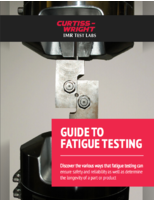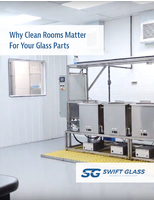STMicroelectronics Announces Autonomie 'OpenWorld Design Contest' Initiative to Promote Human-Assistance Technologies
$20,000 in cash prizes for applications, based on ST's EvoPrimer, that promote advanced navigation and augmented-reality implementations to assist the handicapped
Geneva, March 15, 2011 - STMicroelectronics (NYSE: STM), a global semiconductor leader serving customers across the spectrum of electronics applications, today announced the OpenWorld design contest, which aims to promote the development of technologies for human-assistance applications. OpenWorld is a technology promotion set up by the Autonomie project - a collaborative industry-research consortium funded by the European Union, via FEDER (European Funding for Regional Development), for the development of technologies that facilitate access to public spaces and services for the handicapped.
A total of $20,000 in cash prizes will be awarded to participants with the most innovative and useful electronic applications designed to assist people, with any variety of disabilities or medical conditions, to access public places or services and help them participate actively in daily life.
STMicroelectronics is engaged in the Autonomie project to encourage the application of a wide range of microelectronics technologies, from processors and sensors to wireless technologies, to assist the blind and sight impaired. The objective of the project is to popularize these technologies and applications in 'integrated electronics' solutions that are both affordable and adapted to the real and specific needs of the handicapped. Disabled people are involved in the evaluation, study and design of the technologies within the project, and the initiator of the Autonomie project is himself sight impaired.
Contest participants will benefit from a tool platform that is adapted to this challenge and which includes:
o ST's EvoPrimer for STM32 - a portable, battery-operated demonstrator and development platform featuring STM32 ARM Cortex-M3 based microcontrollers
o Sensor Extension - an EvoPrimer extension board with gyroscope, magnetometer, accelerometer and pressure sensor notably for precision positioning capabilities
o Free software tool set that includes a compiler, debugger and programmer
o CircleOS - middle ware to facilitate application development, portability and reuse of existing Primer applications
o Extension capability for addition of RF chips supporting bluetooth, GPS or other signaling technologies
The OpenWorld application design contest is organized into two main phases: 'Concept Proposal' and 'Development'. The submission of concept proposals is available from March 15, 2011. Entrants need only to register on the contest site, www.stm32circle.com, and submit their concept. There is no limit to the number of concept proposals that a participant may submit. Winners of the Concept Phase will be awarded an EvoPrimer for the STM32 microcontroller, plus software tools, to support them in the creation of their applications.
Participants will have until December 2011 to create and submit their applications, which will be judged by a panel consisting of members of the Autonomie consortium. Applications will be judged on their technical merits, as well as in their utility to the disabled, who will be the end users of the applications.
Notes: STMicroelectronics is a world leader in microcontrollers; for further information on "STM32 world" can be found at www.st.com.
About STMicroelectronics
STMicroelectronics is a global leader serving customers across the spectrum of electronics applications with innovative semiconductor solutions. ST aims to be the undisputed leader in multimedia convergence and power applications leveraging its vast array of technologies, design expertise and combination of intellectual property portfolio, strategic partnerships and manufacturing strength. In 2010, the Company's net revenues were $10.35 billion. Further information on ST can be found at www.st.com.
About Autonomie - Technology serving the handicapped
The Autonomie project develops tools based on high technology, which improve the autonomy of people suffering from blindness or sight impairment. These tools specifically address the improvement of interior and exterior navigation and easing of access to public transportation.
The Autonomie project positions itself in a context of technological innovation and social responsibility in its effort to better use web and mobile phone technologies to improve the lives of handicapped persons in their communities.
The project is certified by the Minalogic Pole of Competition in Grenoble (France) and is financed by the European Union via the European Regional Development Fund (ERDF / FEDER). The project brings together a multidisciplinary consortium of large international companies, local industry, research institutes, local and regional authorities, including:
o STMicroelectronics and ST-Ericsson: Large international companies
o INRIA and the Joseph Fourrier University: research institutes
o Ives and Raisonance: local industry
o SMTC: Public Transportation
o SEMITAG: Transportation in the Grenoble Area
o Grenoble-Alpes Metropole
As a key to the project success, Autonomie partners work in collaboration with associations and persons suffering from sight impairments.




